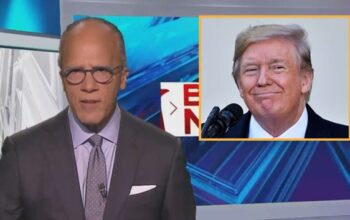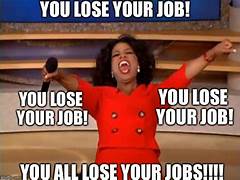Newsom does not think we noticed his signing bills to kill off the gas stations, fast food places, oil and agriculture industries in California. Nor the billions in tax increases, adding costly mandates and tens of billions to failed government schools. Yet he thinks we will appreciate his frugality by vetoing bills for clean water.
““With our state facing lower-than-expected revenues over the first few months of this fiscal year, it is important to remain disciplined when it comes to spending, particularly spending that is ongoing,” the governor wrote in several veto messages, adding that bills with billions in ongoing costs should be considered as part of the “annual budget process.”
This phrase was included in the veto message of several bills, including measures to increase release allowances for state prisoners from $200 to $1,300, provide tax credits to low-income residents living car-free, and require the Department of Public Health to evaluate the “effectiveness” of the state’s monitoring of contagious diseases.”
California is on a path to economic suicide and Gavin is the Pied Piper.
Newsom’s office says his vetoes saved ‘billions in taxpayer dollars’

By Madison Hirneisen | The Center Square, 10/3/22
(The Center Square) – California got a flurry of new laws last week after Gov. Gavin Newsom inked his signature on hundreds of measures by Friday’s deadline. The governor also vetoed more than 150 bills in a move that his office claimed saved the state “billions in taxpayer dollars.”
Of the more than 1,100 bills lawmakers sent to Newsom’s desk during the legislative session, he signed 997 into law. The 169 vetoed by the governor ended up saving the state billions of dollars, his office claimed in a news release.
Newsom utilized a similar refrain in several of his veto messages this year, particularly on bills he deemed had a “significant fiscal impact.”
“With our state facing lower-than-expected revenues over the first few months of this fiscal year, it is important to remain disciplined when it comes to spending, particularly spending that is ongoing,” the governor wrote in several veto messages, adding that bills with billions in ongoing costs should be considered as part of the “annual budget process.”
This phrase was included in the veto message of several bills, including measures to increase release allowances for state prisoners from $200 to $1,300, provide tax credits to low-income residents living car-free, and require the Department of Public Health to evaluate the “effectiveness” of the state’s monitoring of contagious diseases.
Some lawmakers and bill sponsors questioned the governor’s concerns regarding fiscal costs.
“It remains puzzling to me why we are willing to give thousands so easily to incentivize people to buy an electric car, but we’re not willing to spend the same or even less money to encourage people to not use a car at all,” Streets for All Founder Michael Schneider, who supported a bill to provide tax credits to low-income residents who do not own a car, previously told The Center Square.
Assemblymember Kevin McCarty, the author of a bill vetoed by the governor that would require schools to offer a full-day kindergarten class, previously told The Center Square that he was “disappointed” by the governor’s veto. McCarty released a statement saying that despite the governor’s cost concerns about his bill, “I have confidence schools can use previous funding to help provide full-day Kindergarten to their students.”
Newsom’s veto rate this year was 14.5% – his second-highest since taking office. He voted 16.5% of bills his first year, 13% his second year and 8% his third year, according to Sacramento lobbyist Chris Micheli.



